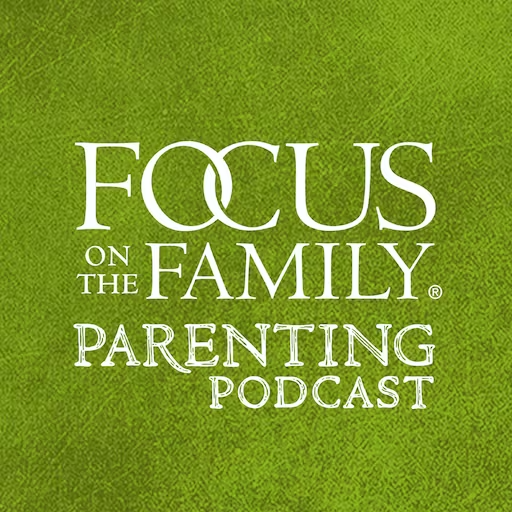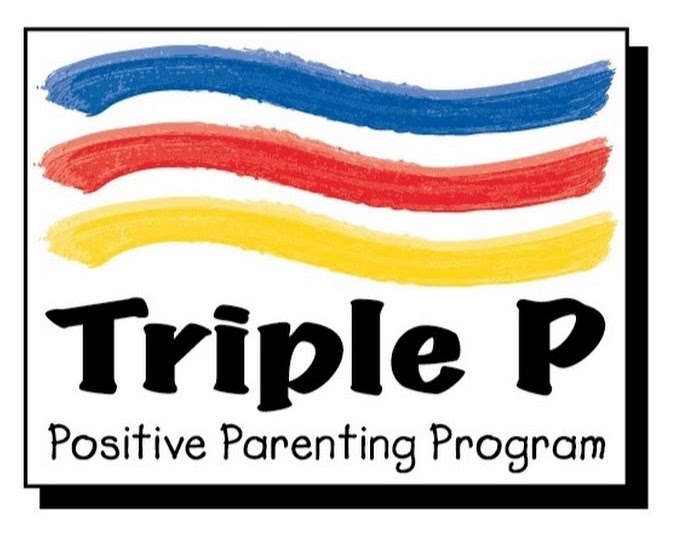Cultivating Positive Behaviour for Learning and Wellbeing in Children

Table of Contents
- Key Takeaways:
- Why Do Children Test the Boundaries?
- Positive Behaviour in Teens
- Determining Appropriate Discipline When Rules Are Broken
- How to Handle Issues Between Siblings
- 10 tips for guiding teens through growth, school, and independence.
- Leading by Example - The Crucial Role Parents Play
- Rewarding Good Behaviour Correctly
- Parenting Styles that Positively Influence a Child's Behaviour
- Positive Behaviour Support for Parents: Helpful Service Providers and Resources
Key Takeaways:
-
Understanding Children's Behavior
- Children naturally test boundaries as a part of growing up, aiming to become independent young adults.
- Factors such as home and school environments, emotional development, relationships, and cultural expectations influence a child’s behavior.
- Children learn to behave in respectful and caring ways when they feel valued and experience respectful relationships.
-
Guiding Teen Behavior
- Fostering positive communication and nurturing warm relationships are key.
- Encourage open dialogues about online interactions, media content, and the difference between digital and real life.
- Introducing responsibilities and setting screen time boundaries can be beneficial.
-
Determining Appropriate Discipline
- Discipline should guide towards appropriate behavior rather than simply punish.
- Balance rules and consequences with warmth and positivity.
- It's essential to set clear and consistent rules that evolve as children grow.
-
Handling Sibling Disputes
- Sibling disagreements are opportunities to teach compromise and coexistence.
- Strategies include active listening, promoting empathy, setting clear boundaries, and using consistent consequences.
-
Guiding Teens Through Growth
- Foster open dialogue, independence, and decision-making.
- Offer guidance on friendships, world issues, and sibling dynamics.
- Reinforce unconditional love and seek outside resources when needed.
-
Role of Parents
- Parents play a crucial role by leading by example. Children, including teenagers, model their behavior after their parents.
- Catching and rewarding good behavior positively influences continued positive actions.
-
Parenting Styles
- Four main styles are Authoritarian, Permissive, Uninvolved, and Authoritative.
- Authoritative parenting, which balances high expectations with warmth and support, tends to yield the most positive outcomes.
-
Christian Perspective
- A Christian perspective emphasizes balance, grace, and truth in discipline and guidance, drawing parallels with God’s relationship with His children.
-
Resources for Positive Behavior Support
- Various organizations and resources, such as Ability Action Australia, Focus on the Family Australia, Triple P, and Raising Children, offer guidance on positive behavior techniques.
- Books by Steve Biddulph provide insights into contemporary challenges in raising both boys and girls.
-
Overall Message
- Cultivating positive behavior and wellbeing in children is a collaborative effort involving parents, schools, and other resources. With understanding, patience, and the right strategies, parents can navigate the challenges of child-rearing effectively.
But it can be hard to know where to draw those boundary lines. To complicate things further, parenting experts recommend an array of sometimes contradictory strategies for cultivating positive behaviour in children.
Then there’s the role of schools, who have comprehensive guidelines to help give students the best chance of learning to positively manage their behaviour and react to that of others.
This article will explore some of the key elements of fostering positive behaviour in children and teenagers.
Why Do Children Test the Boundaries?
While some children test the boundaries more than others, doing so is an expected part of growing up. After all, you want your child to become an independent young adult who makes their own choices and knows they must live with the consequences.
Testing the boundaries is a child’s way of asserting their authority, sometimes expressed as “I’m the boss of me!” Children feel secure when they have boundaries, and will test them for consistency and the reliability of consequences for breaking them.
In a Christian context, we understand that everyone is born with a sin nature, and the inclinations of our hearts are towards independence and rebellion (Ps 51:5; Rom 5: 12; Rom 8:7-8).
Sometimes, children’s behaviour is expressing a want or indicating that their needs aren’t being met. The Victorian Government points out that many factors influence a child’s behaviour, including their home and school environment, consistency of care, relationships with family and educators, cultural expectations, their level of emotional development and temperament, and the presence of a disability that may impact their social and emotional wellbeing.
Children who feel valued and who experience respectful and caring relationships usually learn to behave in respectful and caring ways with others. The important word here is “learn” – using strategies that support positive behaviour helps children learn to manage their emotions and interact successfully in social situations.
Positive Behaviour in Teens
Raising teenagers is a unique challenge, requiring a thoughtful approach that blends understanding and guidance. Unlike younger kids, teens are on a quest of self-discovery, pushing boundaries as they shape their identities. It's a time characterised by distinct behavioural expectations, so what's our role as parents?
First and foremost, fostering positive communication and nurturing warm relationships lay the foundation for harmonious teen behaviour. Setting family rules? Make them clear and positive. For instance, champion the idea of "We communicate with respect" rather than the restrictive "Don’t be disrespectful". Dive deep into active listening – it's more than just hearing words. Encourage your teen to reflect on their actions and feelings. And, remember, not all battles are worth fighting. Sometimes, a touch of humour can be the best remedy for tension.
But here's the thing: the teenage brain is a work in progress. As parents, we must recognise the myriad challenges they face – the allure and pitfalls of social media use, academic stress, bullying, to name a few. So, how can we navigate this digital age with them? Open dialogues about their online interactions, the shows they binge-watch, and the songs that resonate with them can be enlightening. Unpack the difference between reel and real life, nudging them to discern the underlying messages in media.
And there’s more. Introduce them to responsibilities around the home. Age-appropriate chores not only teach them the essence of teamwork but also the gratification of contributing. While the digital world is captivating, strike a balance. Set screen time boundaries, ensuring they cherish both online and offline worlds.
In this intricate dance of adolescence, our role oscillates between a guide and a companion. While the journey is fraught with challenges, with understanding and patience, we can help our teens navigate it with grace and resilience. Remember, it's about shaping tomorrow's adults, not just managing today's teenagers.
Determining Appropriate Discipline When Rules Are Broken
When rules get broken, follow up calmly, firmly and consistently, by using a fair and brief consequence. Negotiate with your teen to decide on appropriate boundaries and the consequences for overstepping them. Ideally, the consequence should be linked to the rule. For example, if your teen isn’t home by an agreed time one night, they’ll need to stay home on the weekend.
When it comes to disciplining teens, it should be about guiding them towards appropriate behaviour rather than punishment. Balance rules and consequences with warmth and positivity, aiming for six positive comments for every negative one.
Teenagers are developing the skills needed to become young adults. Setting limits helps them to learn independence, solve problems and take responsibility for their behaviour and its outcomes.
Families have different standards and rules for behaviour. Talking with other parents who have children around the same age – or your child’s school – can help you determine whether yours are reasonable.
For younger children, it’s important to have clear rules to guide things such as manners, behaviour, safety and treating each other respectfully. These will change as your children get older.
Pre-schoolers, for example, will need simple rules and frequent reminders. At around age 8-10, you can probably start relying on children to follow rules in most situations.
When children inadvertently break rules, you could remind them and give them another chance. Otherwise, use the consequences you have decided upon as a family.
How to Handle Issues Between Siblings
For families blessed with more than one child, sibling quarrels and disputes are almost a rite of passage. However, these clashes are more than just fleeting moments of discord; they present parents with a golden opportunity to foster an environment where siblings not only resolve their differences but also learn the art of compromise and coexistence. Such interactions, while challenging, are invaluable training grounds, equipping kids with essential life skills. Through thoughtful guidance and the right strategies, parents can transform these disagreements into lessons on empathy, communication, and collaboration. Dive into the list below for actionable insights on nurturing harmonious sibling relationships.
Here are 20 ways to improve sibling relationships and reduce conflicts at home:
Communication
- Active Listening: Encourage each child to express their feelings and frustrations without interruption.
- Use "I" Statements: Encourage children to express feelings using "I feel…" rather than blaming the other.
- Mediation: Sit down with the children and help them communicate their grievances to each other.
- Encourage Empathy: Ask each child to put themselves in their sibling's shoes and express how they might feel.
Conflict Resolution
- Cool-down Period: Separate the children for a short time to allow them to cool down before discussing the issue.
- Distraction Technique: Redirect their attention to a different activity if a dispute is escalating.
- Teach Conflict Resolution: Proactively teach them skills to solve problems on their own.
- Model Good Behaviour: Display conflict resolution in your relationships, so they learn by example.
Time Management
- Use a Timer: For shared items, set a timer so each child gets an equal turn.
- Scheduled Alone Time: Give each child individual attention, so they don't feel the need to compete for it.
- Family Time: Whether it’s a regular meal together, or a trip to the beach, regular family time will help strengthen connections and grow positive relationships.
Positive Reinforcement
- Praise Positive Interactions: When they play well together or help each other, praise them.
- Avoid Comparisons: Ensure you're not comparing one child to another, as this can breed resentment.
Collaboration and Teamwork
- Set Up Shared Activities: Encourage teamwork through activities that require collaboration.
- Equal Responsibility: Assign chores that they can do together, fostering cooperation.
Educational and Guidance
- Use Books: Read stories about sibling relationships and discuss the morals.
- Seek Outside Help: If you feel as though things are getting beyond what you can handle it’s ok to ask for help. Consider family, friends, counselling or workshops focused on sibling relationships if disputes.
Boundaries and Space
- Set Clear Boundaries: Clearly communicate house rules and ensure that they apply to all children equally.
- Safe Space: Ensure each child has a private space they can retreat to when they need alone time.
- Consistent Consequences: If boundaries are crossed, ensure consequences are consistent and understood by all.
Teenagers navigate a tumultuous phase, marked by physical transformations, evolving academic environments, and heightened global awareness. Amidst these transitions, they grapple with intricate friendship dynamics, relationships with younger and older siblings, and an innate urge for independence from parental oversight. Parents, therefore, shoulder a pivotal role, not just as guardians but as understanding guides, helping their adolescents navigate these choppy waters with resilience and wisdom.
10 tips for guiding teens through growth, school, and independence.
-
Open Dialogue & Active Listening:
Create a safe space for open conversations. Listen actively without immediately jumping to advice or judgement, allowing your teen to share their feelings.
-
Foster Independence:
Recognise their growing need for autonomy. Gradually offer more responsibilities and freedom, balancing trust with boundaries.
-
Navigate Friendship Dynamics:
Offer guidance on building and maintaining healthy friendships. Encourage them to communicate, set boundaries, and recognise toxic relationships.
-
Sibling Dynamics:
Foster understanding between younger and older siblings, highlighting the unique challenges each age group faces. Encourage mutual respect and patience.
-
Empower Decision-Making:
Let them make decisions and face natural consequences. It's an opportunity for learning and growth, even if they sometimes make mistakes.
-
Educate on World Issues:
Engage in discussions about current events and societal issues, offering a balanced perspective and helping them develop critical thinking skills.
-
Offer Support Without Smothering:
Be available for guidance, but resist the urge to intervene in every challenge they face. Let them navigate and problem-solve on their own when appropriate.
-
Respect Their Privacy:
Understand their need for personal space and privacy, both physically and digitally. Trust is crucial during this time.
-
Reiterate Unconditional Love:
Regardless of disagreements or challenges, consistently reassure them of your unconditional love and support.
-
Seek Outside Resources:
If tensions escalate or specific challenges arise, consider family counselling or workshops. Sometimes, external perspectives can offer valuable insights.
Remember, adolescence is a transitional phase for both teenagers and parents. It requires patience, understanding, and flexibility from all parties involved.
For schools, the way they guide behaviour comes under strict regulations. You can find out more about the Positive Behaviour for Learning approach on sites from the Queensland, New South Wales, Victorian and Australian Capital Territory Governments.
Leading by Example - The Crucial Role Parents Play
Your children learn by watching what you do, so model the praiseworthy habits you’d like to see in them, such as good manners, respectful conversations and following the family rules - act like you’re their positive behavioural specialist.
Even teenagers watch their parents, and they have a sensitive radar for inconsistencies. Being a positive role model is an excellent way to shape your teen’s behaviour.
You can also role model how to handle negotiations and disagreements. Watching and listening to how their parents manage differences of opinion guides children learning to navigate difficult conversations.
Rewarding Good Behaviour Correctly
Another excellent strategy for encouraging positive behaviour is to catch your child being ‘good’. In young children, try using descriptive praise to explain what they’re doing well. For example, say, “It’s great to see you sharing your toys with your brother. I love to see you playing so well together.”
Although it mightn’t seem that way, even teenagers still crave your approval. Noticing and commenting on their responsible choices and positive behaviours encourages more of the same. Just remember to save your praise for in private, rather than embarrassing them around their friends.
Parenting Styles that Positively Influence a Child's Behaviour
When it comes to parenting, there’s not many topics more controversial than how best to manage children’s behaviour. Should you go with an authoritarian style, with strict discipline and harsh penalties for transgressions? Is it better to be permissive, or even a ‘helicopter parent’, hovering expectantly to intervene at the first sign of trouble?
Research has identified four main parenting styles, and how they influence children’s behaviour. They are:
1. Authoritarian
Children are expected to unquestioningly follow their parents’ strict rules, with punishment if they don’t. Authoritarian parents tend to have high expectations but aren’t very responsive to their children.
Authoritarian parenting generally leads to children who are obedient and proficient, but who rank lower for happiness, social competence, and self-esteem.
2. Permissive
Permissive parents make few demands and rarely discipline their children because they have relatively low expectations for maturity and self-control. They tend to be nurturing and communicative with their children, sometimes positioning themselves as a friend more than a parent.
This parenting style often results in children who rank lower for happiness and self-regulation. They are more likely to have issues with authority and perform poorly in school.
3. Uninvolved
This parenting style is characterised by few demands, little communication and a lack of responsiveness. These parents might supply their child’s basic physical needs but are otherwise detached, providing minimal guidance or support. In extreme cases, children may be neglected.
Children raised this way have the poorest overall outcomes. They tend to lack self-esteem and self-control and are less competent than their peers.
4. Authoritative
Like authoritarian parents, they establish guidelines their children are expected to follow, but this parenting style is more democratic. Authoritative parents listen to their children, and balance high expectations with warmth and support. When expectations aren’t met, their disciplinary methods are more supportive than punishing.
Authoritative parenting styles tend to result in children who are happy, capable, and successful.
It seems that this parenting style is the most successful because children are more likely to see their parents as fair and reasonable, making them more inclined to comply with their requests. Because authoritative parents explain their rules, children tend to internalise them and develop their own sense of right and wrong.
It probably isn’t surprising that this approach works best. After all, our Father gives us rules to follow, but always in the context of a loving relationship proven in the glorious grace of Christ’s sacrifice for our salvation.
As Christians, God expects us to train and discipline our children (e.g. Proverbs 13;24; Deuteronomy 6:6-9), but always with a balance of grace and truth and for their blessing (Ephesians 6:1-4).
Positive Behaviour Support for Parents: Helpful Service Providers and Resources
Embarking on the parenting journey presents various challenges, especially when addressing children's behaviour. However, the good news is that there are dedicated organisations and resources offering researched-backed methods and insights to guide parents. Below is a curated list of leading resources emphasising "positive behaviour support" that every parent should consider exploring:
Ability Action Australia
Description Ability Action Australia provides holistic, evidence-based therapeutic and positive behaviour support services for children and adolescents, working closely with families to foster development and well-being; they have centres across major populated areas in Australia to assist families on their NDIS journey.
Website: Ability Action Australia
Focus on the Family Australia - Blog
Description: A branch of the international Christian ministry, it offers advice, resources, and support for families on various issues, including parenting and relationships.
Website: Families.org.au
Focus on Parenting Podcast
Description: Christian parents, do you need a boost and guidance? Plug in your headphones and tune into this faith-focused parenting podcast. Find valuable insights for all parenting phases — from toddlerhood and school days to adolescence and watching your teen thrive with self-assurance. Presented by Danny Huerta, each 8 to 15-minute segment brings forth expert advice rooted in scripture, impactful parenting strategies, and handy resources to empower you in today's societal context.
Website: podcasts.focusonthefamily.com/
Triple P – Positive Parenting Program
Description: This internationally acclaimed parenting program offers simple and practical strategies to help parents manage their children's behaviour effectively.
Website: www.triplep-parenting.net.au/au/triple-p/
Raising Children
Description: Funded by the Australian Government, Raising Children is a resource containing up to date information for families
Website: raisingchildren.net.au
Author Steve Biddulph
Steve Biddulph's work in parenting, particularly with his books "Raising Boys in the 21st Century" and "Raising Girls in the 21st Century," are crucial resources in understanding contemporary challenges and strategies for positive child-rearing.
Link: Raising Boys in the 21st Century on Amazon
Link: Raising Girls in the 21st Century on Amazon
For parents seeking guidance, these platforms provide a solid foundation in positive behaviour support techniques. Remember, reaching out for help and guidance is a sign of strength, not weakness. By collaborating with these services, parents can gain the skills and confidence needed to navigate the sometimes turbulent waters of child-rearing effectively and compassionately.






